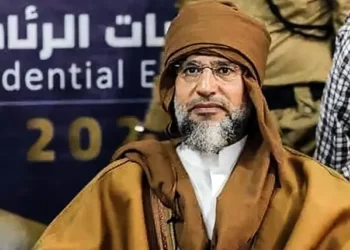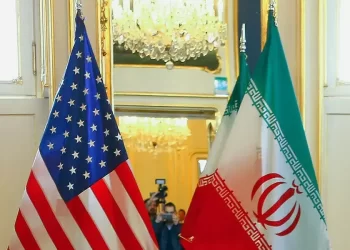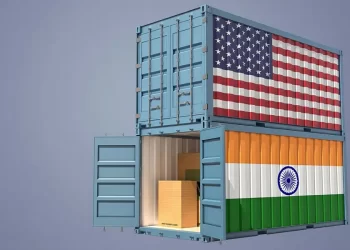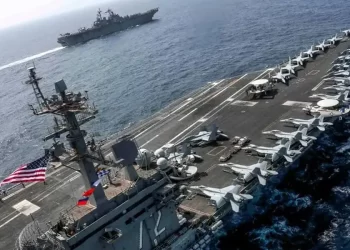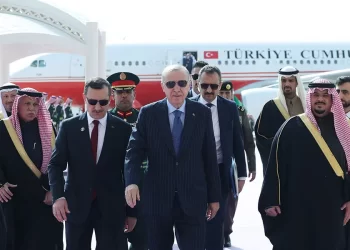CARACAS, Venezuela (news agencies) — The last time anyone heard from Edni López was Sunday. The 33-year-old political science professor and award-winning poet was preparing to board a flight to Argentina to visit a friend when she texted from the airport that something was wrong with her passport.
“Migration took my passport because it’s showing up as expired,” she wrote her boyfriend in the message shared with media. “I pray to God I don’t get screwed because of a system error.”
What happened next remains a mystery — one contributing to the climate of fear and repression that has engulfed Venezuela following its disputed presidential election, the most serious wave of human rights abuses since Latin America’s military dictatorships in the 1970s.
When López’s mother, Ninoska Barrios, and her friends learned she didn’t board the flight, they started frantically combing detention centers. Finally, on Tuesday — more than 48 hours later — they learned she was being held, incommunicado, by Venezuela’s feared military intelligence police on unknown criminal charges, unable to see an attorney or speak with her family.
“Please, give back my daughter,” a sobbing Barrios pleaded Tuesday outside Venezuela’s top human rights office in a video that went viral on social media. “It’s not right that a Venezuelan mother has to go through all this.”
López’s arrest isn’t unique. Since the July 28 presidential election, security forces have rounded up more than 2,000 people for demonstrating against President Nicolás Maduro or casting doubt on his claim he won a third term despite strong evidence he lost the vote by a more than 2-to-1 margin. Another 24 have been killed, according to local human rights group Provea.
The spree of detentions — urged on by Maduro himself — is unprecedented, and puts Venezuela on pace to easily exceed those jailed during three previous crackdowns against Maduro’s opponents.
Those arrested include journalists, political leaders, campaign staffers and an attorney defending protesters. Others have had their Venezuelan passports annulled trying to leave the country. One local activist even livestreamed her arrest by military intelligence officers as they broke into her home with a crowbar.
“You’re entering my home arbitrarily, without any search warrant,” Maria Oropeza, an opposition campaign leader in rural Portuguesa state, says in the livestream that abruptly ends after three minutes. “I’m not a delinquent. I’m just an average citizen who wants a different country.”
The repression, much of it seemingly random and arbitrary, is having a chilling effect, said Phil Gunson, a Caracas-based analyst for the International Crisis Group.
“It’s not just discouraging protests. People are scared to go on the streets, period,” said Gunson, adding that parents of teenage boys are especially worried. “There’s a sense that police have a quota to fill and anyone can be stopped and carted away as a suspected subversive.”
The threats start at the top.
“They’re hiding rats but we’re going to grab them,” ruling socialist party boss Diosdado Cabello said about several prominent opponents in an address to the Maduro-controlled legislature a day after the election.
Meanwhile, Maduro has called on Venezuelans to denounce election doubters via a government-run app originally created to report power outages and complaints about state-provided services. He also said the government was refurbishing two gang-dominated prisons to accommodate an expected surge of jailed guarimberos — his dismissive term for middle-class protesters who barricaded themselves in the streets for weeks in 2014 and 2017.
“There will be no mercy,” Maduro said on state TV.
But complicating efforts to crush dissent is the changing face of the government’s opponents.
While demonstrations have been far smaller and tamer than during past bouts of unrest, they’re now more spontaneous, often leaderless and made up of youth — some barely teenagers — from Caracas’ hillside slums who have traditionally been a rock solid base of support for the government.
“I don’t care how many people have to die, “ Cleiver Acuna, a 21-year-old tattoo artist, said at one recent grassroots march where protesters climbed up lampposts to tear down Maduro campaign posters.
“What I want is my freedom. My homeland. I want to live in the Venezuela my grandparents once told me about.”
Maria Corina Machado, the opposition powerhouse who rallied Venezuelans behind a last-minute stand-in candidate after she was barred from running against Maduro, has also urged restraint, reflecting the fear many feel.



